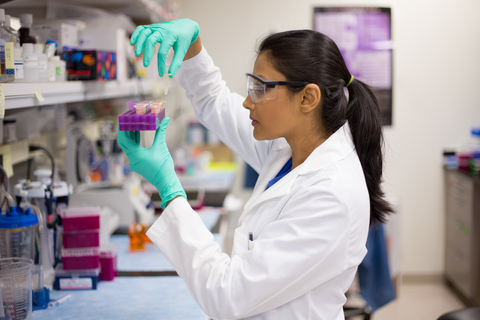Key gene may be the underlying cause of inflammatory bowel disease

A key gene that helps to explain an underlying cause of inflammatory bowel disease (IBD) has been identified by scientists at the University of Edinburgh and University of Bristol (University of Bristol, 2017). The study shows blocking the gene harms vital parts of the cell and leads to bowel disease, while targeting these vital cell parts with drugs can reverse damage.
Scientists said the findings help understanding of the cause of inflammatory bowel disease and could lead to new treatments. Inflammatory bowel disease, which includes conditions such as Crohn’s disease and ulcerative colitis, affects around 300,000 people in the UK. The causes are unknown and there is currently no cure.
The gene, called MDR1, governs an important extractor system for toxins in the gut, removing damaging substances from intestinal cells. A research team, led by the University of Edinburgh, showed that MDR1 function was lower in colonic biopsies from people with inflamed inflammatory bowel disease compared with those without inflammation.
To demonstrate how MDR1 dysfunction leads to bowel damage, the scientists then showed that mice lacking MDR1 had faulty mitochondria, parts of the cell often referred to as batteries. These play a vital role in energy generation and cell health. This mitochondrial dysfunction resulted in colitis.
The scientists further implicated the role of mitochondria by linking inflammatory bowel disease to a large number of genes involved in regulating these cell batteries. The researchers analysed genetic data from 90,000 people, 40,000 of whom had inflammatory bowel disease. The study also showed that a drug called Mitoquinone, which protects the mitochondria against toxins, can reduce colitis and promote bowel recovery in the mice lacking MDR1, which the scientists said is a significant step forward.
Lead author Dr Gwo-Tzer Ho, Honorary Consultant Gastroenterologist at the University of Edinburgh’s MRC Centre for Inflammation Research, said “IBD has a serious impact on quality of life, with 6,000 new cases diagnosed per year in the UK. We have shown that MDR1 and mitochondrial function are important jigsaw pieces in the complex causes of IBD. Our studies highlight the importance of shielding the mitochondria from damage. This will open new approaches to drug targets that focus on the mitochondria to better design treatments for patients.”
The research, carried out in collaboration with researchers in the US and Japan, was funded by the Medical Research Council and Crohn’s and Colitis UK. It is published in Mucosal Immunology.








